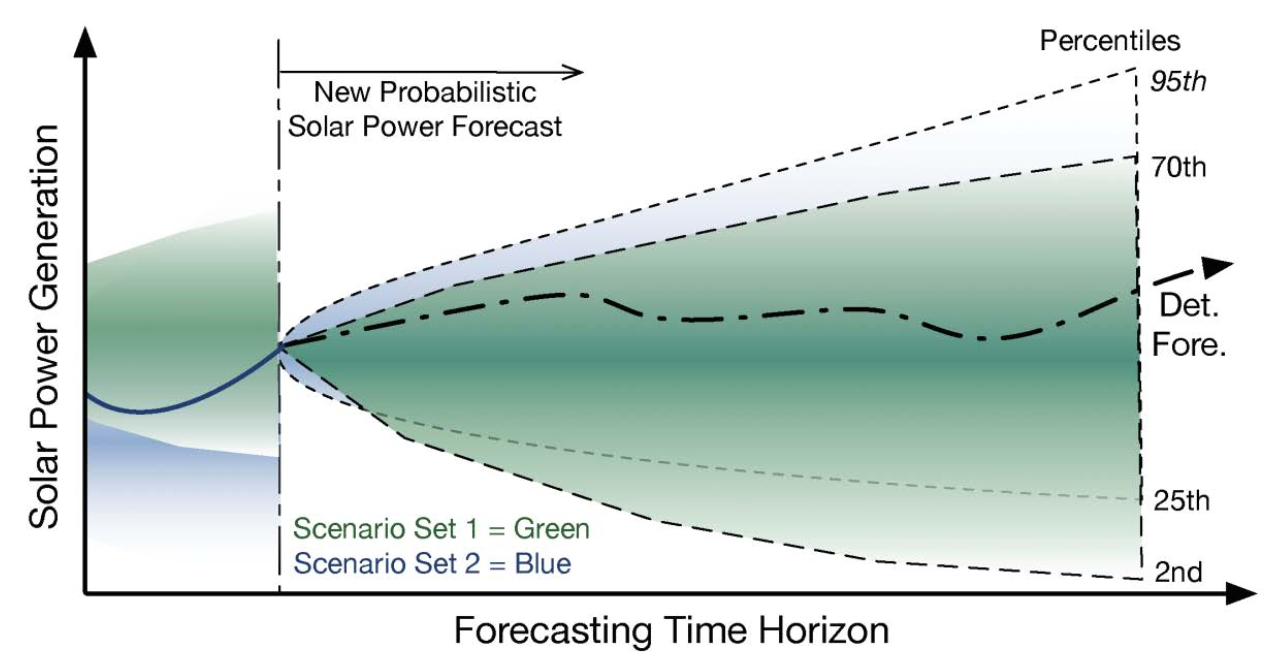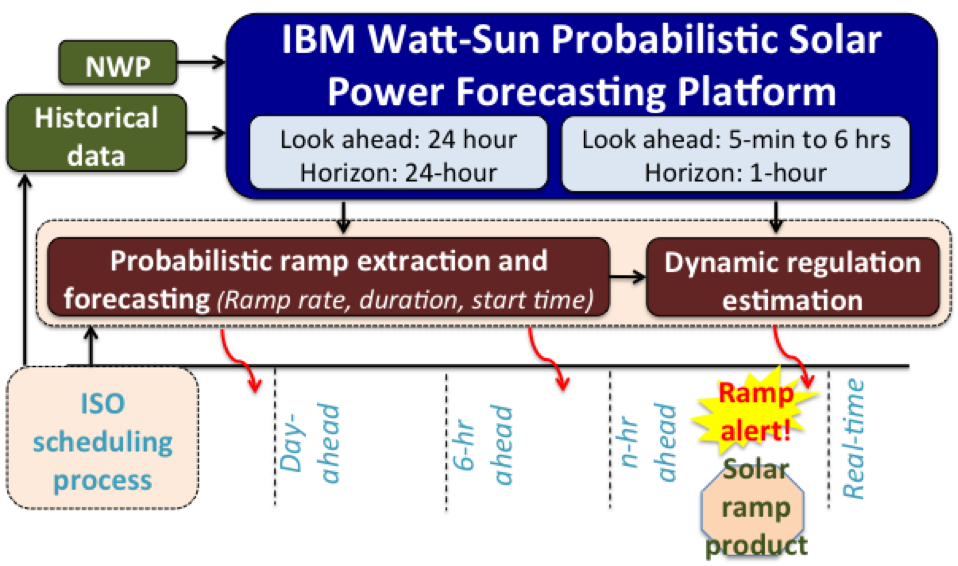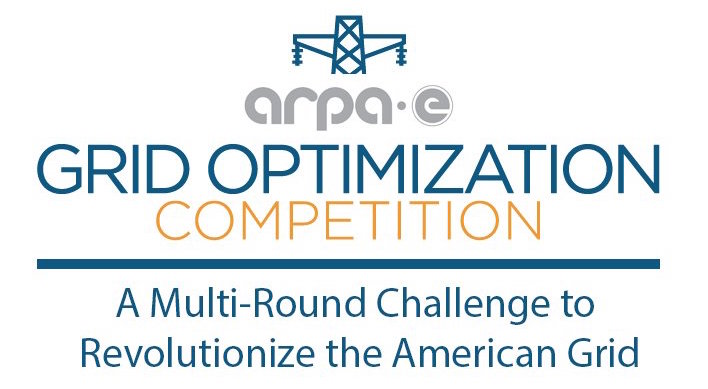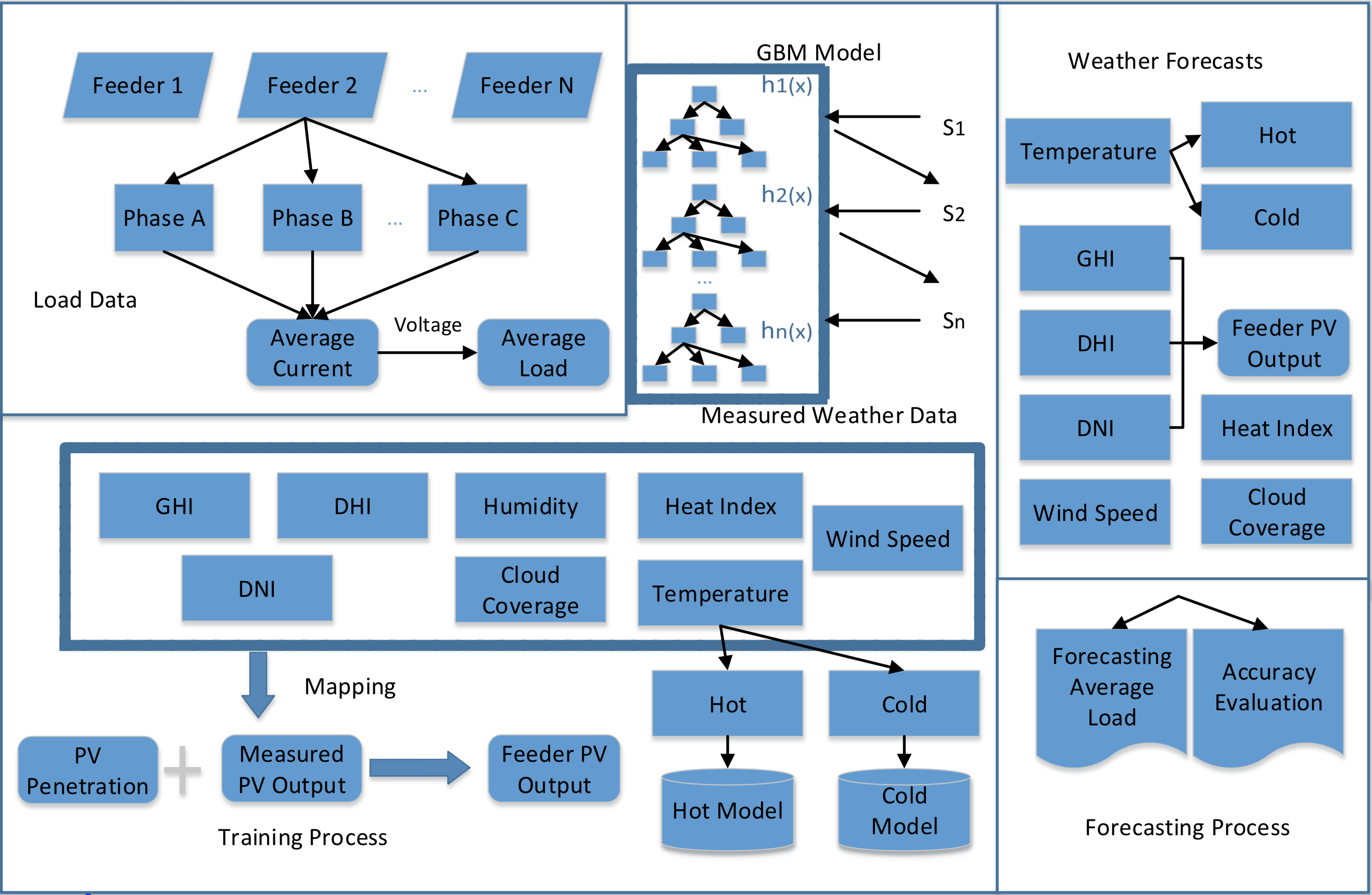Past Research Projects
Co-located Wind Farm and Hydrogen Plant Energy System Study (2021 - 2022, funded by WindSTAR (NSF IUCRC))
 |
This project will perform a planning & operational study on a co-located wind farm and hydrogen energy system. Integrated energy systems (IES) of this genre need to be designed considering both the financial and technical constraints to demonstrate their feasibility rather than relying on additional incentives or favoring policies. REopt, an open source tool developed by NREL, will be adopted and improved to perform the study. Papers:
|
Machine Learning-based Real-time Optimal Switchings of Reconfigurable Microgrids (2021 - 2023, funded by U.S. Army ERDC)
 |
This project is to explore how machine learning could be leveraged to solve the optimal switching of reconfigurable microgrids in real time under both normal and extreme operations (e.g., grid contingencies, natural disasters, and cyber/physical attacks). A learn-to-reconfiguration (L2R) methodology will be developed to learn the relationship between microgrid state and optimal reconfiguration decisions with an end-to-end manner based on state-of-the-art deep learning models. Papers:
|
Solar Uncertainty Management and Mitigation for Exceptional Reliability in Grid Operations (2018 - 2021, funded by DOE EERE)
 |
The project is designing novel algorithms to create probabilistic solar power forecasts and automate their integration into power system operations. Adaptive reserves will dynamically adjust reserve levels conditional on meteorological and power system states. Risk-parity dispatch will be developed to produce optimal dispatch strategies by cost-weighting solar generation scenarios on forecast uncertainty. This project will test the integration of probabilistic solar forecasts into the Electric Reliability Council of Texas’ real-time operation environment through automated reserve and dispatch tools that can increase economic efficiency and improve system reliability. Papers:
|
 |
This project is advancing the state-of-the-art in solar forecasting technologies by developing short-term and day-ahead probabilistic solar power prediction capabilities. The proposed technology will be based on the big-data-driven, transformative IBM Watt-Sun platform, which will be driven by parallel computation-based scalable and fast data curation technology and multi-expert machine learning based model blending. The integration of validated probabilistic solar forecasts into the scheduling operations of both the Midcontinent and California Independent System Operators will be tested, via efficient and dynamic procurement of ramp product and regulation. Integration of advanced visualization of ramping events and associated alerts into their energy management systems and control room operations will also be researched and validated. Papers:
|
A Hybrid Approach To SCOPF Using Cross-Entropy (2018 - 2020, funded by DOE ARPA-E)
 |
This project will develop an innovative hybrid optimization method to solve the Security-Constrained Optimal Power Flow (SCOPF) problem formulated under the Challenge 1 of the ARPA-E Grid Optimization (GO) Competition. The base of the proposed optimization method will rely on a combination of formal mathematical optimization, metaheuristics, and the cross- entropy method, an approach that has proven to be successful in solving this kind of optimization problem, recently winning the SCOPF competition organized by the IEEE Working Group on Modern Heuristic Optimization (WGMHO). Papers:
|
Providing Ramping Service with Wind to Enhance Power System Operational Flexibility (2016 - 2019, funded by DOE EERE)
 |
With increasing wind power penetration in the electricity grid, system operators are recognizing the need for additional flexibility, and some are implementing new ramping products as a type of ancillary service. However, wind is generally thought of as causing the need for ramping services, not as being a potential source for the service. In this project, a multi- timescale unit commitment and economic dispatch model is developed to consider the wind power ramping product (WPRP). Designed as positive characteristics of WPRs, the WPRP is then integrated into the multi-timescale dispatch model that considers new objective functions, ramping capacity limits, active power limits, and flexible ramping requirements. Papers:
|
WindView: An Open Platform for Wind Energy Forecast Visualization (2016 - 2019, funded by DOE EERE)
 |
This project is to create an open situational awareness and decision support platform “WindView”, that provides grid operators with knowledge on the state and performance of their power system, with an emphasis on wind energy. The focus will be on utilizing advanced visualization to display pertinent information, extracted through computational techniques, from wind power forecasts for high-wind penetration systems Papers:
|
Data-Driven Hierarchical Load Forecasting with Distributed Energy Resources (funded by Oncor)
 |
This project is developing load forecasting models (especially under extreme weather conditions) of different forecasting horizons at different levels of aggregation, by taking account of behind-the-meter (BTM) PV. Papers:
|
Watt-sun: A Multi-scale, Multi-Model, Machine-Learning Solar Forecasting Technology
*Cui, M., Zhang, J., Hodge, B.-M., Lu, S. and Hamann, H. F., A Methodology for Quantifying Reliability Benefits from Improved Solar Power Forecasting in Multi-Timescale Power System Operations, IEEE Transactions on Smart Grid, Vol. 9, Issue 6, 2018, pp. 6897-6908. (PDF)
Zhang, J., Hodge, B.-M., Lu, S., Hamann, H. F., Lehman, B., Simmons, J., Campos, E., Banunarayanan,V., Black, J. and Tedesco, J., Baseline and Target Values for Regional and Point PV Power Forecasts: Toward Improved Solar Forecasting, Solar Energy, Vol. 122, 2015, pp. 804-819. (PDF)
Zhang, J., Florita, A., Hodge, B.-M., Lu, S., Hamann, H. F., Banunarayanan, V. and Brockway, A., A Suite of Metrics for Assessing the Performance of Solar Power Forecasting, Solar Energy, Vol. 111, 2015, pp. 157-175. (PDF)